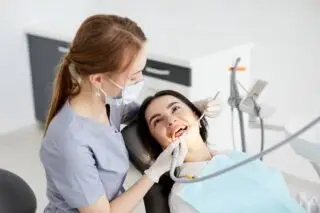Becoming a Surgical Tech
Surgical technologists are crucial to virtually any surgery. Their specialized training, attention to detail, strong ethics, and deep desire to keep patients safe make them an invaluable part of any surgical team. “Aeger primo”—a Latin phrase meaning, “patient first”—is at the core of the Surgical Technologist’s code of ethics. Wondering whether this career is right for you? Read on to learn more about what Surgical Techs do, their job outlook and salary, the traits that help them succeed, and how to get started on your own career path to become a Surgical Technologist.
What do Surgical Technologists do?
Surgical technologists are responsible for sterilizing operating rooms and instruments used in surgery. They may also have any of the following responsibilities:
- Maintaining a sterile operating room environment
- Conducting inventory of tools
- Positioning patients on operating table/covering them with appropriate surgical draping
- Preparing medications and sterile solutions
- Handing sterile instruments to surgeons during surgery
- Attending to the surgeon’s needs (such as suctioning incisions, moving tissue, or, with specialized training, suturing wounds)
- Transferring patients to recovery room
- Restocking the operating room
Why Become a Surgical Technologist?
Job Outlook and Salary
The job outlook for surgical technologists is particularly good. According to the Bureau of Labor Statistics (BLS)[1], Employment of surgical technologists is projected to grow 7 percent from 2019 to 2029, faster than the average for all occupations.” The U.S. News and World Report[2] writes that Surgical Technologist ranks, “#17 in highest paying jobs without a degree, and #26 in best healthcare support jobs.” The need for Surgical Technologists is expected to increase due to the aging Baby Boomer generation—this generation (more often than ones before it) often elects surgery to improve their health or quality of life as they age[3]. The median salary of a Surgical Technologist is $48,300 (as of May 2019)[4].
Professional Traits
Surgical Techs are accountable, caring, empathetic, well composed, and flexible. “Everything a surgical technologist does is about patient safety,” explains Benson Bradley, Surgical Technology Program Director (CST, MBA, FAST) at Carrington College in Phoenix, AZ. “Throughout the program of study, students learn how to maintain aseptic technique; they are accountable to keep the patient safe and maintain sterility,” he says. Benson has been in the Surgical Technology field for over thirty years, as a Surgical Technologist, a Surgical Assistant, and an instructor. He emphasizes the importance of being teamwork oriented. “As a Surgical Technologist, you are part of a team in the OR,” he says. “The surgeon, nurse, surgical technologist, surgical assistant, nursing assistant—everyone works together. It’s less about what you know but more about why you are there—for the patient.” It is essential for Surgical Techs to maintain composure; emergencies can occur quickly in the OR—even in minimally-invasive procedures—and a calm demeanor helps maintain the tone for the whole team.
Training, Skills, and Certification
The first step in pursuing a career in Surgical Technology is to attend an accredited community college or technical school to earn a Certificate or Associate of Science degree in surgical technology. The Surgical Technology program at Carrington College gives students the hands-on skills they need to become a professional working Surgical Technologist, with an Associate Degree in as few as 15 months. Graduates also earn CPR certification and basic life support—skills required for many jobs. Students in the Surgical Technology program learn with a blend of virtual classroom instruction and hands-on instruction in both ‘mock’ operating room labs and clinical (externship) settings—such as hospitals or surgical centers. During the last month of their final term, first cohort students are eligible to sit for the Certified Surgical Technologist (CST) National Certification Exam offered by the National Board of Surgical Technology and Surgical Assisting (NBSTSA). As the Surgical Technology program is in its first year at Carrington, first cohorts can sit for the National Exam. After obtaining accreditation, at the end of the first year, all other students are eligible. The students are prepared to work as surgical technologists upon graduation and obtaining the national certification makes them more marketable and eligible to work anywhere in the country.
Job Placement
Surgical Technologists mainly work in hospital operating rooms or labor and delivery, or in minor surgical centers or GI labs, which perform outpatient procedures. Surgical technicians can also work in the Central Sterile department of a hospital, where they are responsible for cleaning and decontaminating instruments. Post-graduation, some Surgical Technologists choose to do additional training—additional certifications are available from the Accreditation Review Council on Education in Surgical Technology and the Certified Surgical First Assisting credential, which allows surgical technologists to directly assist surgeons during procedures. Additional training and certification enable Surgical Techs to expand their skills to become:
- A Surgical Assistant (who is trained to further help the surgeon with things such as closing (suturing) a patient, etc.)
- An Organ Procurement Specialist (who is trained to remove organs for donation)
- A Surgical Technology Instructor
- A Physician’s Assistant (PA)
- A Traveling Surgical Technologist—a Surgical Technologist who works under contract, traveling to different states or regions (this type of Surgical Technologist earns a higher income).
Press Additional details and descriptions of Surgical Technologists’ roles can be found at: http://www.prcc.edu/files/career-tech/sut/JobDescriptionRoles.pdf
Career Services: Support in your Job Search
The Career Services department at Carrington College is a great resource for all students; they provide support and guidance, help students find clinical (“externship”) opportunities during their course of study, and assist them in the job search after graduation. Students meet with a Career Services Advisor during their first week of the program, and advisors visit classes throughout the year to help students on their career path. Career Services also host job fairs, where students can talk to potential employers and hear more about job opportunities. [1] https://www.bls.gov/ooh/healthcare/surgical-technologists.htm#tab-6 [2] https://money.usnews.com/careers/best-jobs/surgical-technologist [3] https://www.bls.gov/ooh/healthcare/surgical-technologists.htm#tab-6 [4] https://www.bls.gov/ooh/healthcare/surgical-technologists.htm#tab-6



